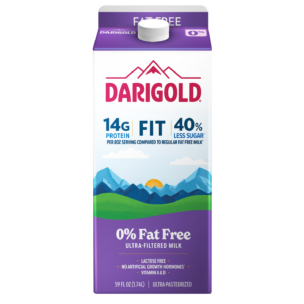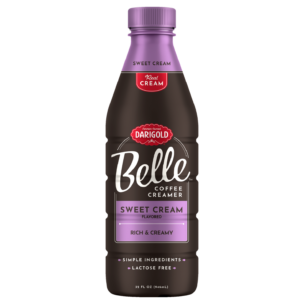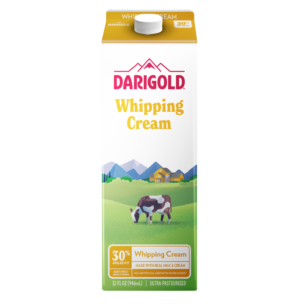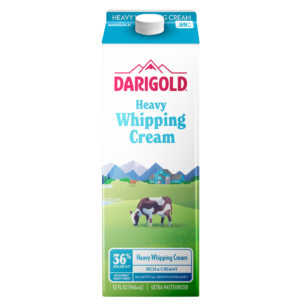Half & Half Fat Free
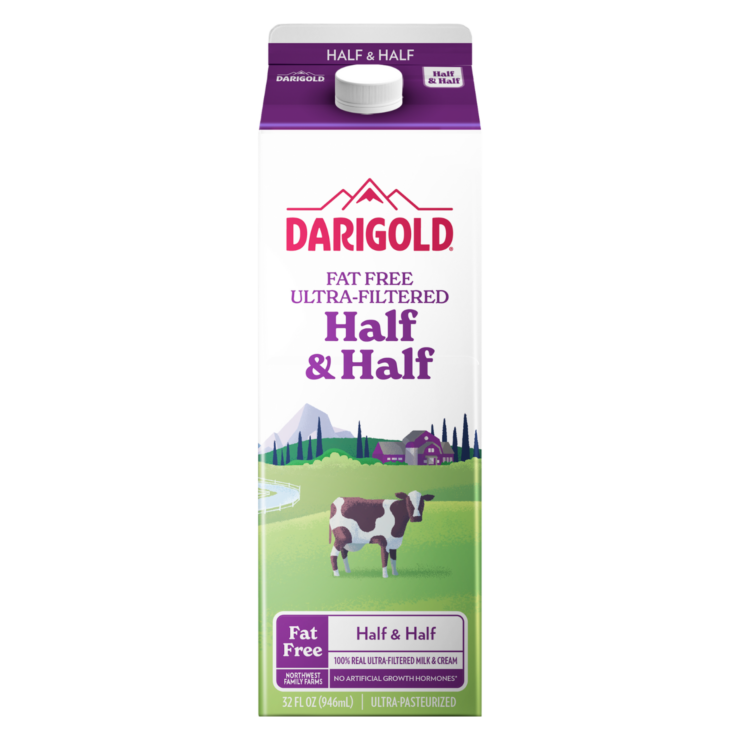
Delight without consequence. Enjoy the rich taste without the guilt! Darigold Fat-Free Half & Half is made from real ultra-filtered milk, delivering the flavor and texture you love—without the fat. Go ahead, treat yourself – perfect for coffee, cereal, and recipes.
Sourced from caring family farmers and never from cows treated with rbST.
-
- Real, ultra-filtered fat-free milk
- Fresh, creamy & smooth
- Ultra-pasteurized to stay fresh for longer
- No Artificial Growth Hormones (rbST Free)*
- Gluten Free
- Kosher Certified
*From cows not treated with the artificial growth hormone rbST. According to the FDA, no significant difference has been shown between milk derived from rbST treated cows and non-rbST treated cows.
-
Nutrition Facts
- About 28
- servings per container
- Serving size
- 2 Tbsp (30mL)
- Amount per serving Calories
- 15
Amount/Serving % Daily Value- Total Fat
- 0g
- 0%
- Saturated Fat
- 0g
- 0%
- Trans Fat
- 0g
- Cholesterol
- 5mg
- 2%
- Sodium
- 25mg
- 1%
Amount/Serving % Daily Value- Total Carbohydrate
- 1g
- 0%
- Dietary Fiber
- 0g
- 0%
- Total Sugars
- 1g
- Includes
- 0g Added Sugars
- 0%
- Protein
- 2g
- 4%
- Vitamin D
- 0mcg
- 0%
- Calcium
- 61mg
- 4%
- Iron
- 0mg
- 0%
- Potassium
- 47mg
- 2%
- Vitamin A
- 35mcg
- 4%
* The % Daily Value (DV) tells you how much a nutrient in a serving of food contributes to a daily diet. 2,000 calories a day is used for general nutrition advice.
-
Skim Milk, Ultra-filtered Skim Milk, Cream (Adds a Trivial Amount of Fat), Vitamin A Palmitate (Not Found in Regular Half and Half).
You May Also Like
View All ProductsDairy
Made
Better
Farmers

